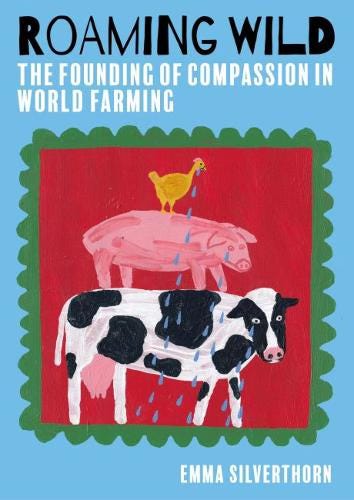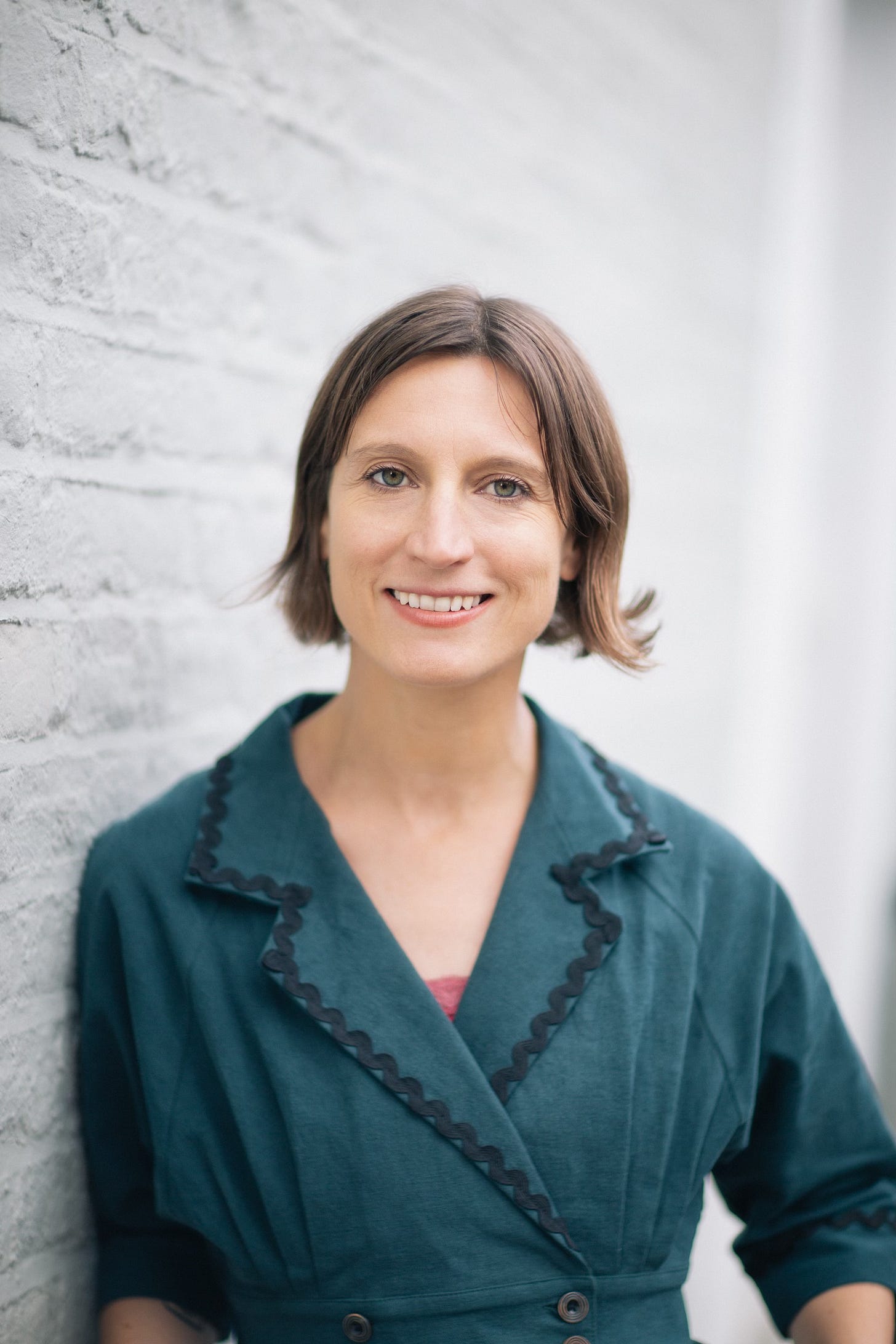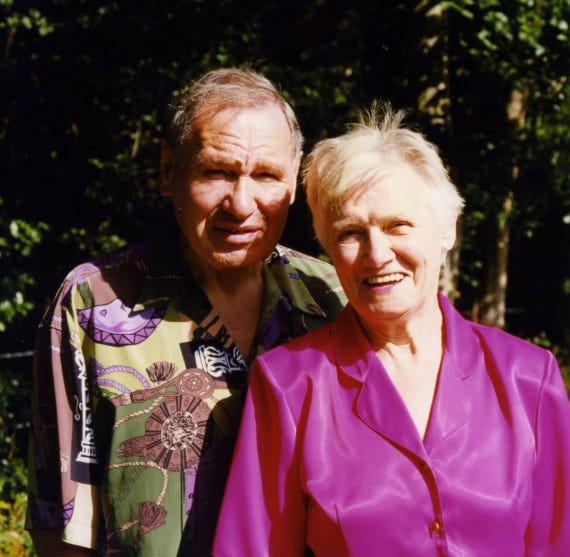Emma Silverthorn
Author Interview
Welcome to the fourth in a series of interviews with authors. Emma Silverthorn is a writer and educator. She is the granddaughter of the founders of Compassion In World Farming. Her book, Roaming Wild: The Founding of Compassion In World Farming (Whittles Publishing), documents the major changes in post-war agricultural life in Great Britain. It is part biography and part modern-day animal welfare history.
How would you describe yourself?
I am a writer and educator. A writer in the sense that writing, whether fiction, non-fiction, or meandering blogs, is my favourite activity and has been ever since I was a small child. An educator largely in terms of my work as a tutor of Literature, Language and Creative Writing, work which I find extremely nourishing and enjoyable. And now with the publication of Roaming Wild, I hope I am educating readers too in terms of the horrors of factory farming, the inspiring history of the animal advocacy movement in this country and beyond, and the remarkable lives of my grandparents.
What prompted you to write Roaming Wild?
I had been toying with the idea of writing the life story of my grandparents Anna and Peter Roberts founders of Compassion in World Farming since taking a Masters in Creative and Life Writing at Goldsmiths University back in 2006. But as I then saw myself as more of a fiction writer I hadn't taken the idea very seriously, or put fingers to keyboard, until many years later when one Christmas, Philip Lymbery, current CEO of CIWF, who was by then also my uncle through marriage, asked at the tail end of the celebrations if I’d ever thought of writing their story. We had been celebrating in Anna and Peter’s former home, Copse House, which was also where CIWF had been founded and where the campaign spent the first ten years of its life, and so the idea was thoroughly re-sown! Next, it was put to the CIWF trustees, some of whom had worked alongside Anna and Peter, and who agreed to commission me to write their founder's story. I was thrilled to be given the time, space and licence to do this and many years of reading, research, interviews, writing and editing ensued.
What were the challenges involved in writing Roaming Wild?
Managing to balance the personal and the political was a struggle! I was very close to my grandparents and we were close generally as a family so it was sometimes hard to strike a balance. Would it be interesting, for example, to the readership of a book about the fight against industrialised farming that one of the Roberts daughters used to insert Maltesers (small round chocolate) into her nostrils as a party trick, or that we had a series of amazing family holidays in Cape Cornwall in the mid-90s? Or would they only want to know about The Sentient Being Act and high-profile CIWF supporters such as Joanna Lumley and Spike Milligan? I think I got the balance sorted in the end but it was tough! (The Malteser story stayed in by the way.) Oh, and the research also took far longer than I had anticipated and it was on occasion a pretty emotional journey!
Did you discover anything new about your grandparents, Peter and Anna Roberts, that you didn’t know?
I discovered that Peter had a very early interest in the spiritual life and not in the Church of England on what might have been suspected for a young man from his background—middle class, born in Staffordshire in the nineteen twenties. But of a much more esoteric and later Eastern bent. This complex and open-minded belief system led him, in part, to view his animals when he was a farmer, a little differently and later to make, alongside Anna, such a radical life change as to quit farming, go vegetarian, and establish an animal charity out of the back-room of their family home! While I knew Peter was always intrigued by the sacred I had not realised quite how early this interest had begun aged 14 or earlier. In these days of commodified and diffuse spirituality, I realised just how eccentric this would have been seen in the era and locale.
I too knew something of my grandmother’s fundamental role in terms of both the founding, and the ongoing campaign life of the charity, but the more I researched the more it struck me how much her role had been underappreciated. Peter, himself, was always very clear that Compassion had been ‘founded by two people’ and stated this often. But I suppose for reasons that he was the more public-facing of the two, as the official CEO, and probably because of reasons of sexism, the extent of Nan’s/Anna’s influence in the founding, as well as the sheer amount of work she did especially in those early days, and when she was taking care of three small children, came as something of a revelation. It was Nan/Anna too who first asked Peter ‘What about the chickens, don’t they have any rights?’ when in 1960 a man from the Ministry of Agriculture knocked at their farmhouse door pressuring them to make the switch from free range to intensively farmed chickens. Her question can be viewed as a radical one even now, when so many in the animal movement and public beyond, prefer the more benign word ‘welfare’ over ‘rights’! I learned too that Nan/Anna sold over 8,000 copies of one of her vegetarian cookbooks back in the eighties, for those not in the book world, an enormous number of sales for a niche veggie cookbook!
What do you think Peter and Anna would say to the world today?
On one hand, I think they would feel that their message was something of a broken record and they would be saying what they had always said: they would encourage less animal and animal product consumption and when/if one was consuming animals and their products they would encourage better 'food animal' choices, meaning free-range ones. They’d encourage respect and connection to the natural world, and they’d encourage anyone who could advocate for animals, people and the planet, three areas which they always viewed as interconnected.
On the other hand, I think they would also be acknowledging how far we have come in terms of the sheer awareness of issues around animal sentience, compassion itself, the benefits of eating less and better meat, or indeed none, and I believe they would also be so impressed with many of the international activists of today, particularly the young ones.
Roaming Wild is available in the U.K. and Europe here and here. In North America, purchase Roaming Wild here.
40 % of royalties from the purchase of Roaming Wild are donated to CIWF.
Cover art: David Horgan Art
Emma’s Substack After the Fact here.





Hi Emma, this is so interesting, I love your use of POSAM and DAFOREST in your writing, I am missing you as my English teacher and I hope to hear from you soon
Such great questions Kim, thank you for interviewing me & for supporting 'Roaming Wild'!